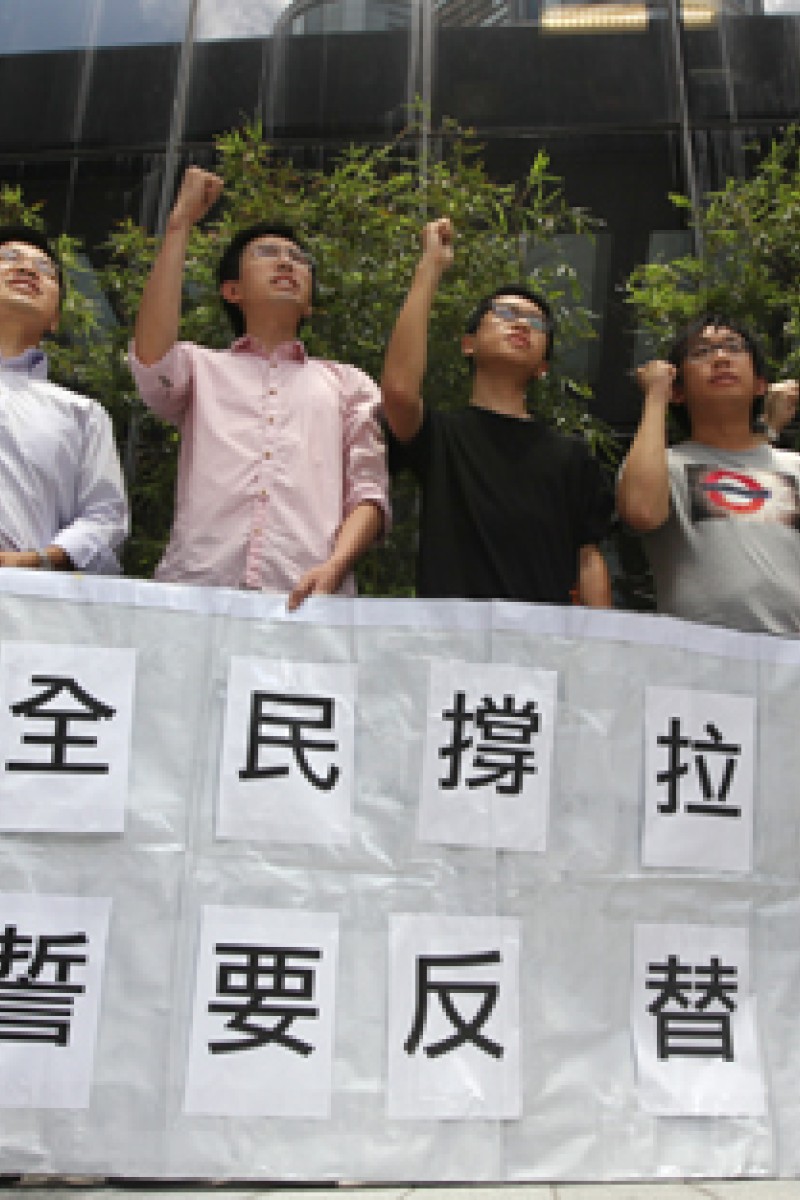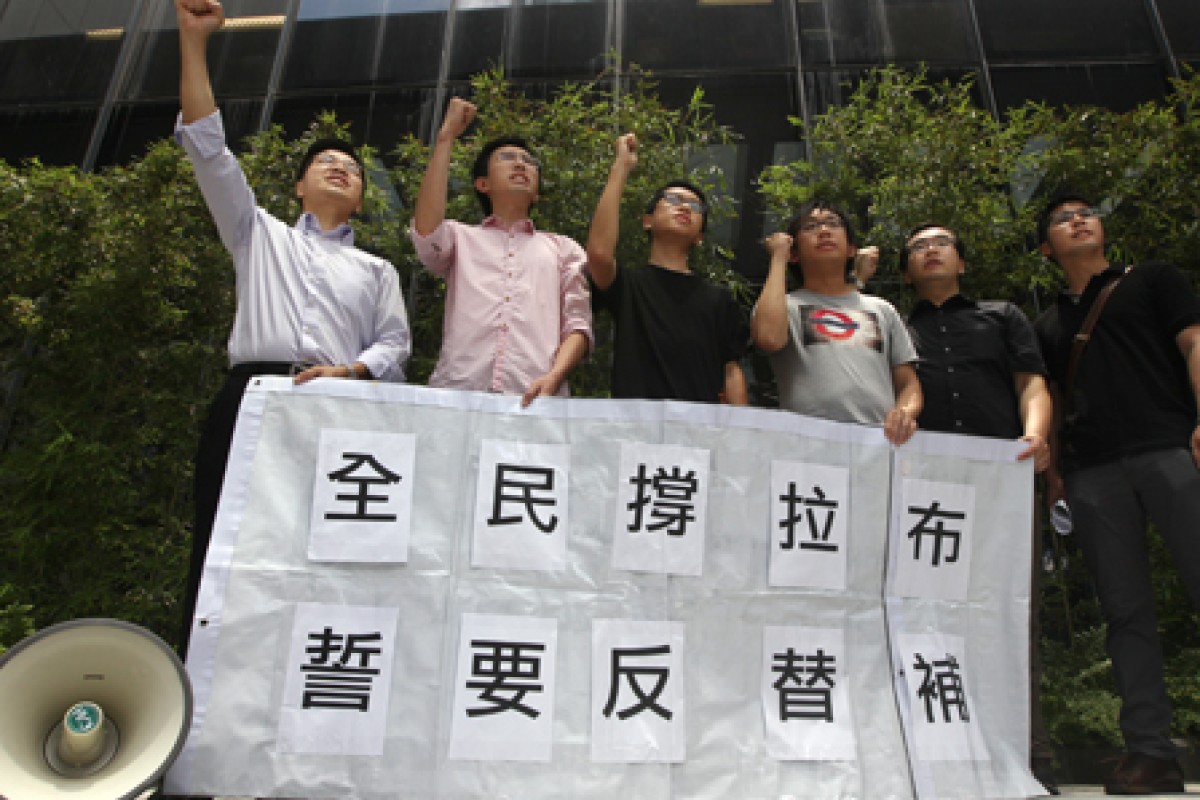
Facts of filibustering: are long delays really worth it?
Rebel lawmakers in bid to block by-election bill
 A group holds a banner that says 'all citizens support the filibuster attempt against the by-election bill'.
A group holds a banner that says 'all citizens support the filibuster attempt against the by-election bill'.The rebel lawmakers view the by-election bill as "a waste of time and public money", and have given lengthy speeches on more than 1,300 amendments to the bill. This filibustering tactic aims to delay, and ultimately prevent, a vote on the bill being passed.
The local media has mainly focused on the unhappiness and counter-measures taken by those in favour of the bill, and public opinion about the delays and interruptions of the Legco meetings.
But not enough attention has been paid to the bill itself, or the reasons behind the filibustering. If filibustering lawmakers can be "punished" in the upcoming election, is the cause really worth it?
For the actual bill itself, the focus of the discussion has moved away from the core issue of whether lawmakers who resign should have the right to contest by-elections, to the tiny details of amendments which are not heeded by the pro-establishment camp (those "for" the bill) and the boycotting pan-democrats (those "against" the bill). It seems the filibustering lawmakers want to highlight the silliness of the routine of legislation.
The pro-establishment camp is the majority within Legco, and so it rules in the passage of government bills.
Some pro-establishment lawmakers (especially those from functional constituencies) have been criticised for their poor attendance and lack of involvement in past legislative processes.
Although they would almost certainly support this bill, their absence from meetings (which has led to delays) does not indicate their level of support.
This behaviour leads to the question: are they just voting machines that care more about their own businesses rather than attend Legco meetings?
The outcome of not resorting to filibustering is obvious. Only bills supported by the pro-establishment camp can be easily passed, regardless of the level of disagreement by the pan-democrats (especially those from the geographical constituencies), who are actually the majority in terms of the electoral base.
So it seems that filibustering is likely to happen again with regard to future controversial bills.
The cause of filibustering will not be lost as long as both the government and the public become more aware that legislation is not about easy headcounts, but about seriously engaging in the give-and-take process with the opposing majority/minority.